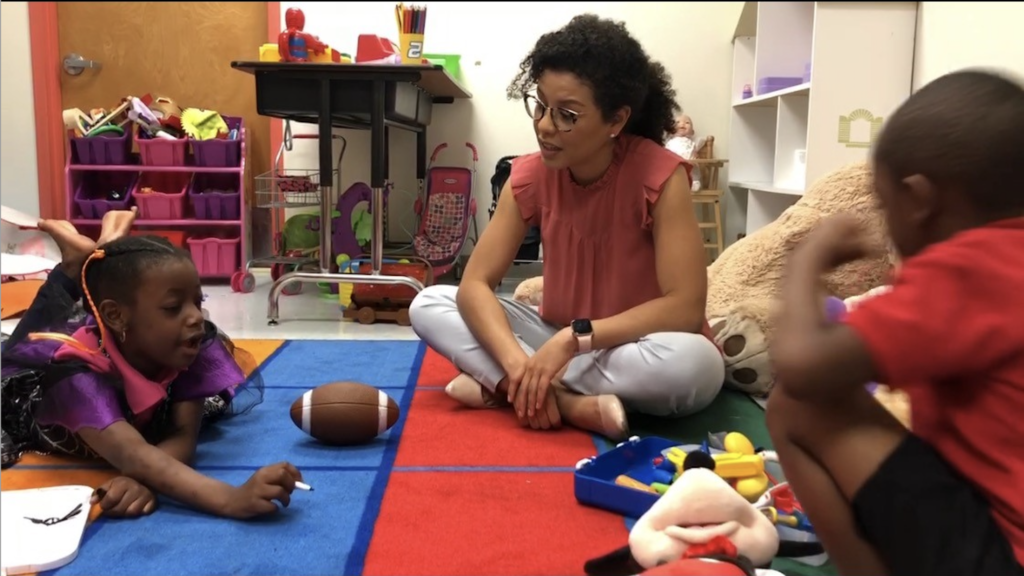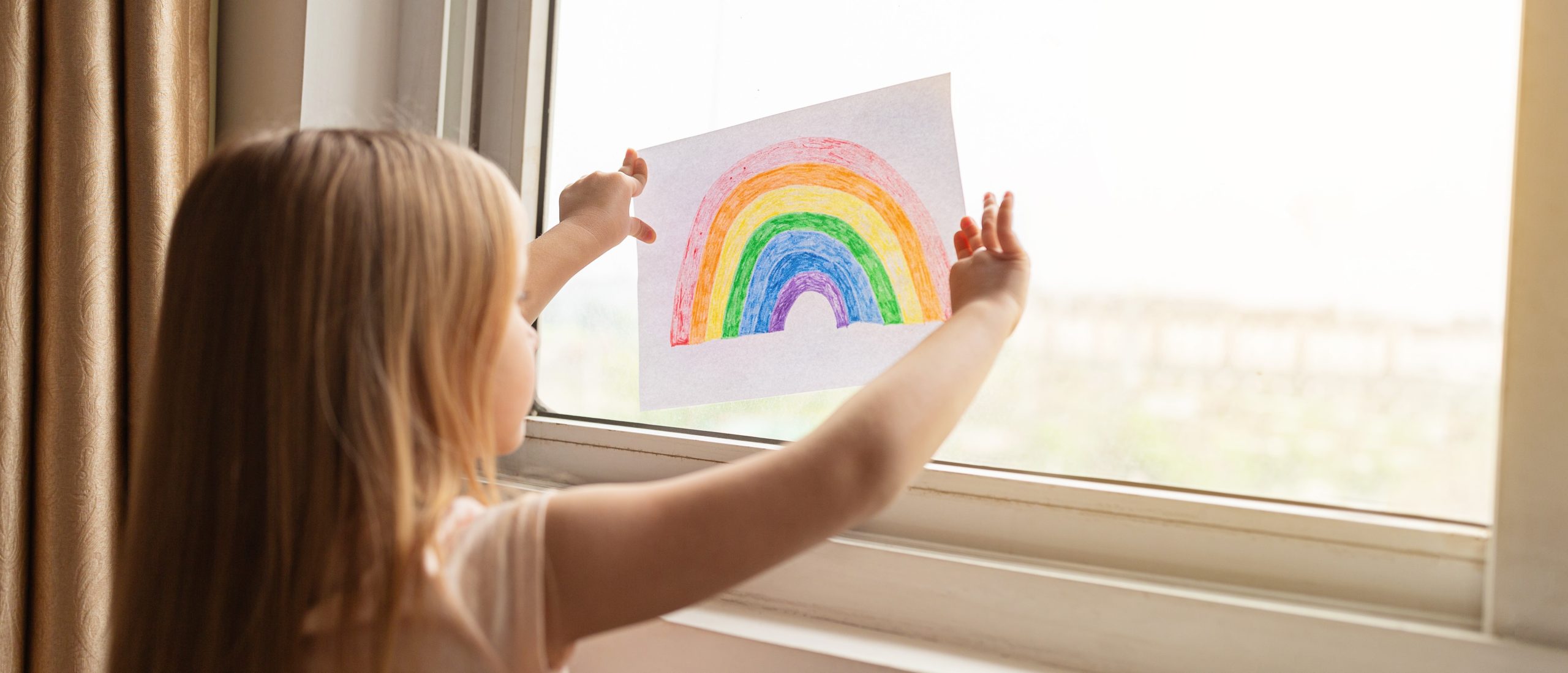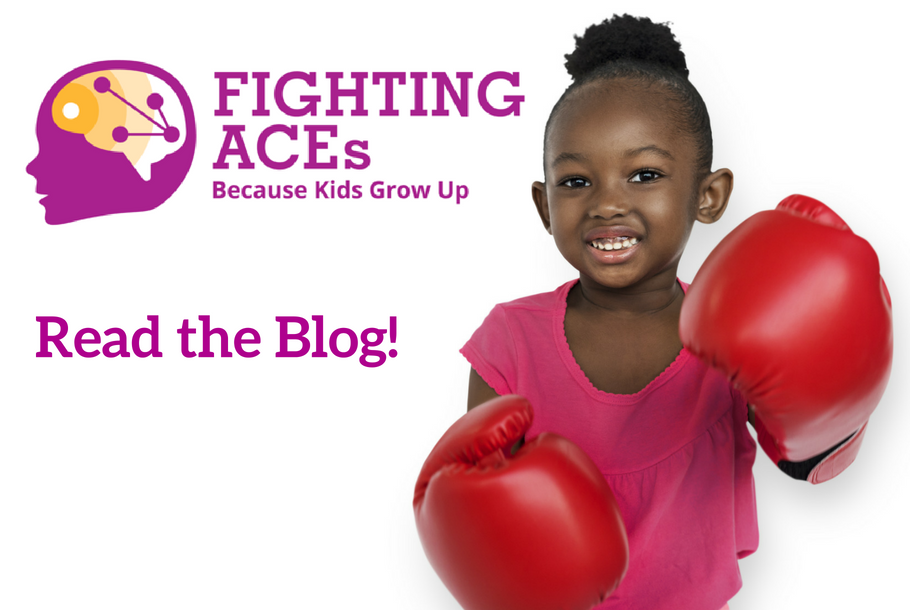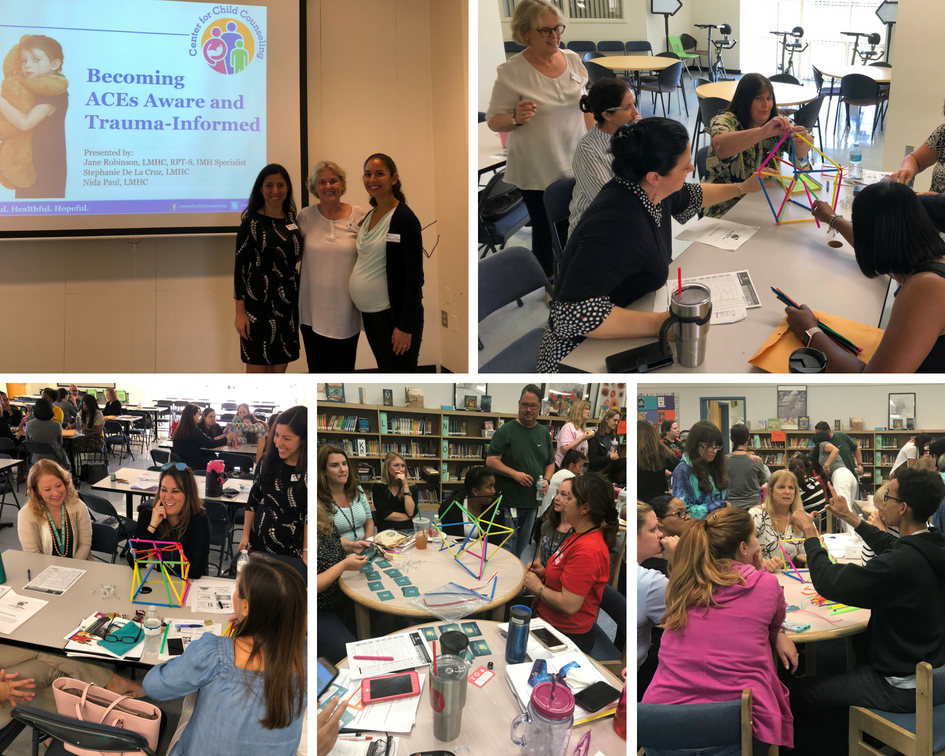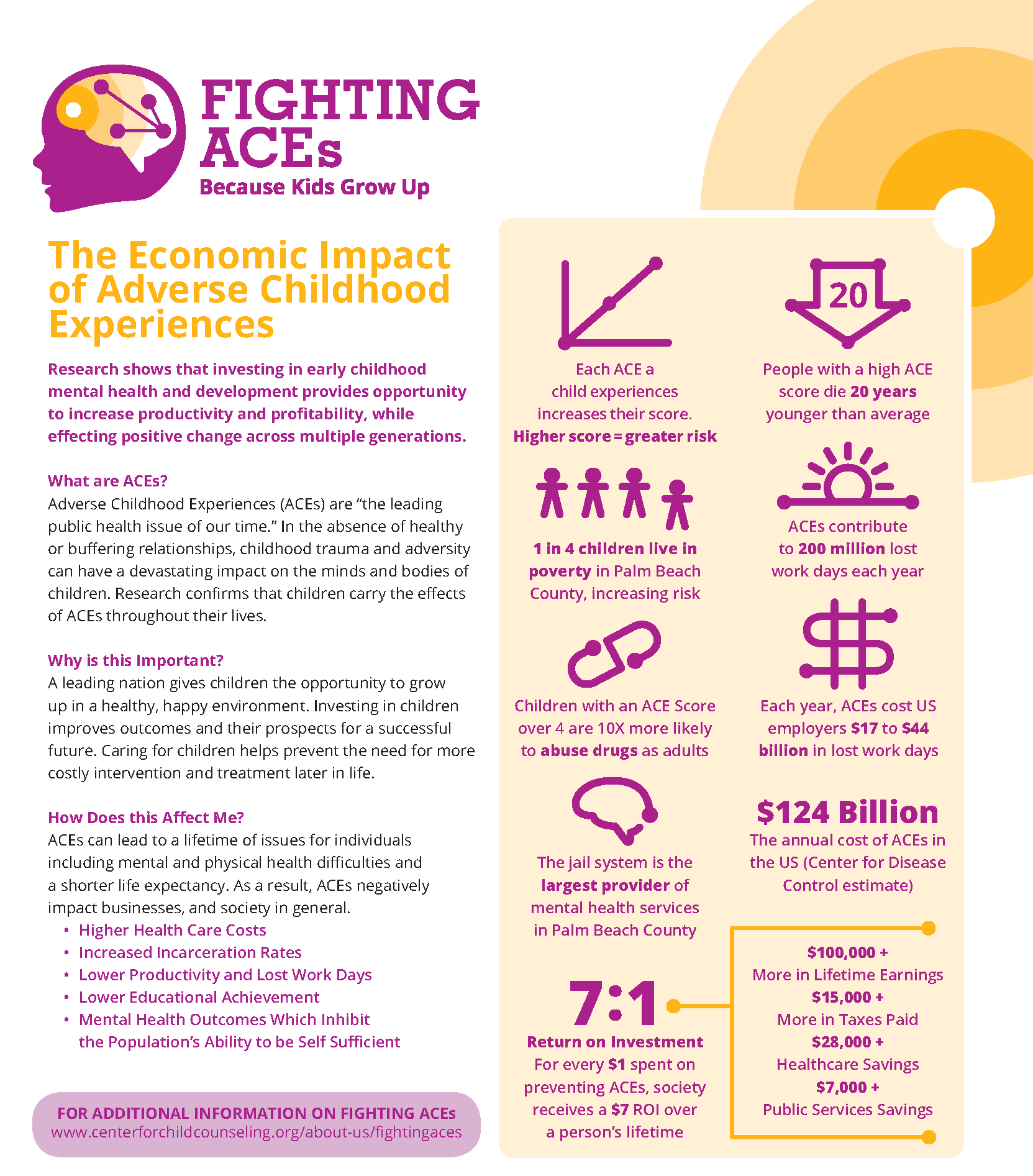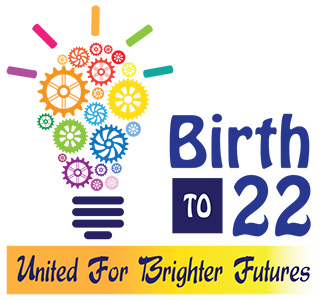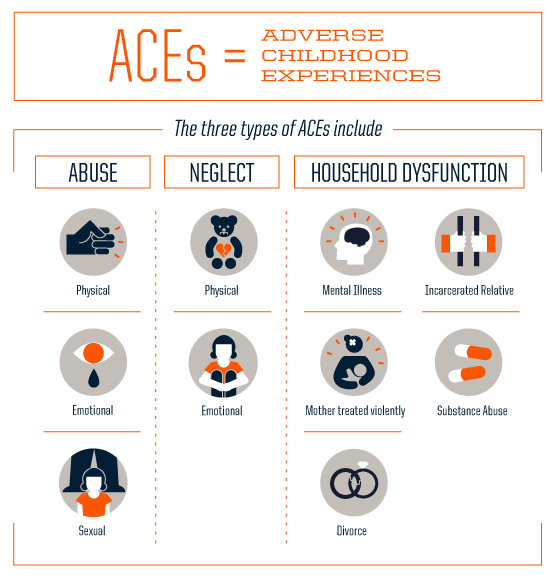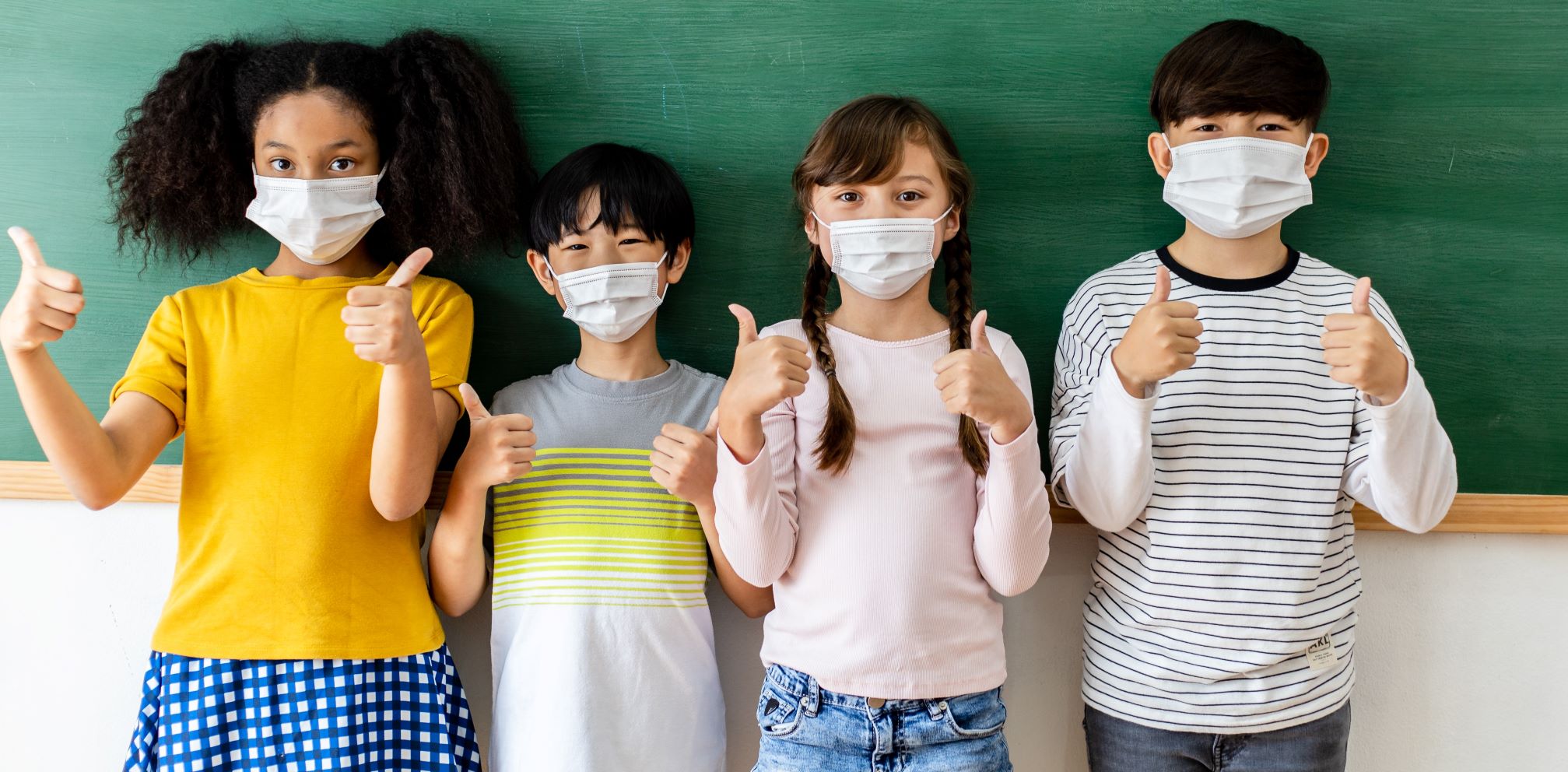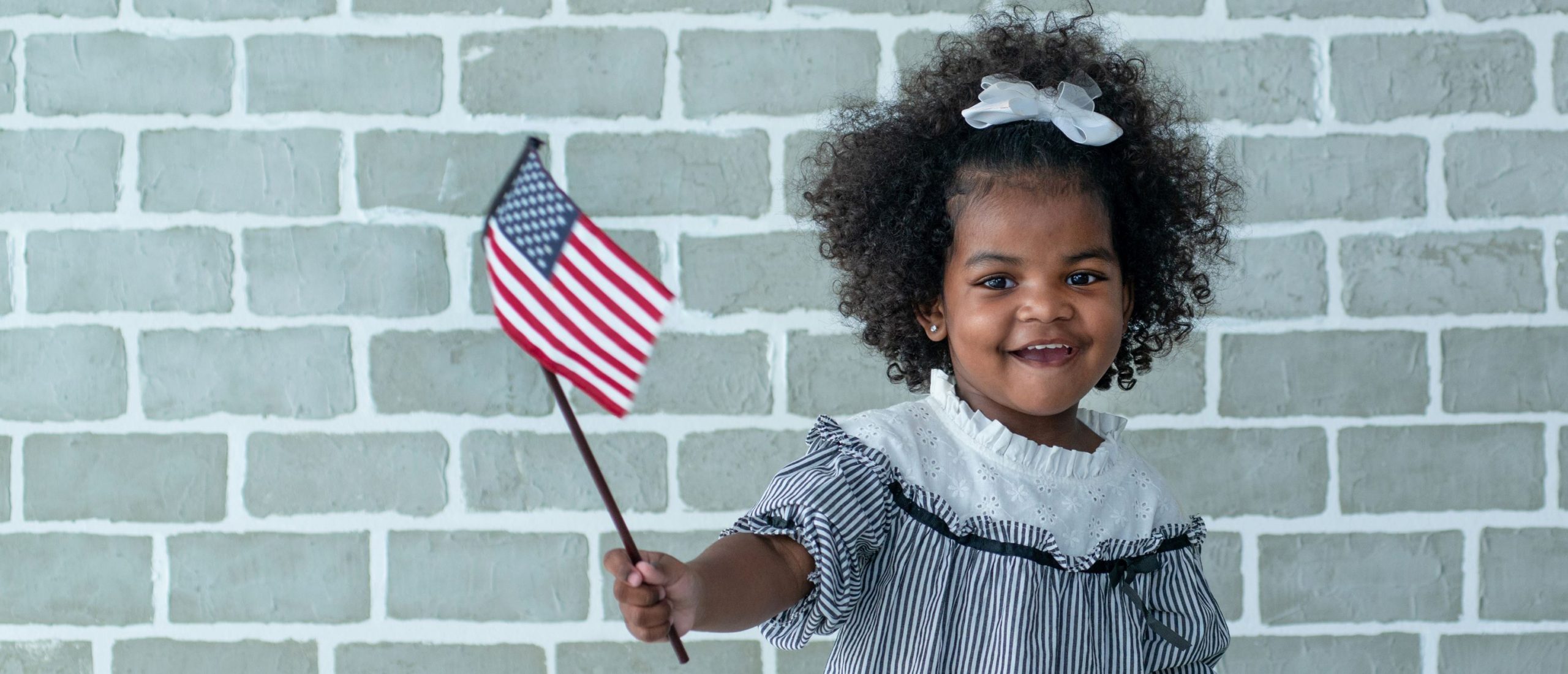
At Center for Child Counseling, we are seriously committed to helping educate the community about Adverse Childhood Experiences (ACEs). We offer free trainings through our online learning platform, we work in schools and community centers to bolster the childcare workforce, and we even host expert panels like last month’s “Lead the Fight” virtual panel event which brought together local leaders to discuss the best opportunities for building a more trauma-informed community within specific sectors. We even release this monthly blog post as part of a researched educational series to discuss every aspect of childhood trauma and adversity.
But to focus exclusively on ACEs is to miss the full picture. If childhood adversity has potentially lifelong physical and mental health implications that can be devastating to individuals and communities, then childhood positivity, happiness, enrichment, and learning are bound to have the opposite effect – building lifelong resilience and communities that are strong and thriving.
Positive Childhood Experiences
So, let’s focus on positive childhood experiences for a while, those aspects of childhood that we all look back on with joy and credit with making us the people we are today. Childhood positivity is the antidote to ACEs. If we can build positive childhoods for our children where they feel secure, valued, and understood, we can surely ensure a much brighter planet for everyone.
But where does positivity start? It begins, of course, long before a baby is even born with prenatal care, but really, it begins before that with the good mental health and social support of both parents. Once a baby is born, the first few years of life are especially crucial. Very young infants and children are exposed to very little else besides their immediate parents and caregivers. They interact with the world through these people and the connections and attachment they build within these relationships. So how can we make these first interactions as positive as possible? It all starts with acceptance. In fact, all successful and healthy human relationships include strong components of acceptance. Nobody likes to feel judged. Everybody wants to be seen and known and loved for exactly who they are.
This is, however, easier said than done. Reaching a state of acceptance can sometimes be a lifelong journey. Very few parents end up with their dream child who is everything they imagined, never lets them down, and never puts a foot wrong. How could we expect that from a little, growing human being? Just as we delight in a child’s little triumphs and achievements like their first steps or words, so we inevitably see their little flaws, too – perhaps the first signs of stubbornness or a bad temper. Like all humans, a child is a complex combination of factors, personality traits, quirks, tendencies, and eccentricities. But the beginning of childhood positivity comes when a child feels that they are truly loved and accepted for who they are by the most important people in their lives – their parents, caregivers, and/or siblings.
Let’s look at ways we can work towards acceptance as the foundation of positive childhood experiences.
Focus on Being a Mindful Parent
The key to having a great relationship with your child is to really know them. Being connected to your child and in tune with their feelings helps them feel accepted and valued. Mindful parents bring awareness to interactions with their children, pulling lessons from situations to help the child better understand the world around them. Here are some ways you can show a child you want to know them for who they really are:
- Practice Active Listening: Really focus on what your child is saying and the words they choose to use. A lot of communication is non-verbal, so pay attention to gestures and facial expressions, too. Try to look your child in the eye or go down to their level to show they have your full attention. This type of focused listening helps you understand your child better and shows them that their needs matter to you.
- Communicate by Reflecting Back: Mirror back what a child tells you. Don’t judge; just repeat back what you hear them saying. For example, “You feel sad and worried because your puppy is sick.” This helps a child identify their emotions and name them. It helps build awareness of their own behaviors and reactions and lets them know you are understanding them.
- Help by Labeling Emotions: Often, children lack the vocabulary to name their emotions and so suffer from frustration. Hep you child become aware of different emotions by naming them. You can also connect an emotion with a behavior, so help a child make better choices. For example, “I know you are angry because your face is red and you’re yelling.”
- Demonstrate Self-Regulation: The best parents lead by example. They show their children techniques they use to calm down or practice self-control (this is called self-regulation). Maybe you count to ten slowly, or do breathing exercises, or choose to laugh and make a silly joke and laugh to diffuse tension. Your child learns from you.
- Show Empathy and Compassion: Showing empathy towards your child when they are upset shows them that you love them despite the situation and demonstrates your acceptance of them despite their behavior. Kindness goes a long way in helping a child feel accepted.
Understand Where Your Child is Developmentally
Sometimes, a parent or caregiver’s frustration with a child stems from a misunderstanding of the ages and stages of child development. For example, you may have heard of the “terrible twos” and even the “terrible threes” when children can be particularly exasperating because of their seeming defiance and love of the word: “No!” You may have found it hard to accept your child’s behavior at this stage, but when you understand that this is the very specific period of development when children are learning to understand their sense of self, it makes more sense that they are testing their autonomy and testing you. Often, understanding where your child is developmentally will help you avoid feeling frustrated with them. In our manual “A Way of Being with Children: A Trauma-Informed Approach to Building Resilience”, we dedicate an entire section to childhood development and a child’s developing brain, so that you can fully understand where your child is at each age.
Examine Yourself and Your Child
There may be a tendency to imagine your child as a reflection of you. For biological moms, this is most natural of all since the baby grew directly inside their body and was a part of them. But it’s valuable to examine how your child is different from you as well as how they are the same. The more you look at the differences your child displays when developing their own fully formed personality, the more you’ll be able to appreciate that they are unique individuals and that they are going to experience their own joys and struggles in life that will have very little to do with your journey. Noticing and appreciating differences is the first step in accepting your child as an individual.
Free Your Child From Your Dreams
Most parents have some preconceived notions about what their child will be like and what they will achieve in life. This is only natural and probably stems from great intentions. Who wouldn’t want a child to achieve great things in their career? Who wouldn’t want their child to experience the independence and excitement of going to college? But the truth is that many of your dreams for your children may not come true. Assumptions you’ve made about the choices they’ll make are likely wrong. College may not be right for your child. They may choose to pursue other interests. This can be particularly painful for parents who have very set ideas for the children, such as taking over a family business or following in the family’s religion. But the secret to maintaining a strong relationship with your child is accepting that they may not always do what you believe to be best for them. They are their own people and, like you, are going to make both good and bad choices in their lives. You cannot save them from bad choices or their consequences. But you can accept them and prepare them. You can only support them, guide them, and give them the best possible foundation for success by teaching them sound judgment and common sense.
Accept Yourself
Many of us come to self-acceptance later in life. As we mature and grow wiser, we realize that life may not turn out exactly as we planned. We may have failed at something very important to us. We may not have fulfilled all our dreams. We slowly learn to feel okay about that and make peace with ourselves. Reaching self-acceptance is a large part of accepting others. When we’re critical of others (in other words judgmental), it’s often because we feel they are demonstrating negative traits or behaviors that we fear we, too, may be prone to. So, when you are being critical of your child, is it most often during times when you feeling bad about yourself? In other words, are you taking out your lack of self-acceptance on your child because you’re trying to protect them from your own flaws and failings that you perhaps see mirrored in them?
If you want to work on building a better relationship with your children, we encourage you to explore our free trainings on a variety of topics relevant to parents and caregivers. We also offer an array of free resources from ways to play more creatively with your children to ways to help children through a crisis or disaster. Our world-class manual on understanding and enjoying children more fully entitled “A Way of Being With Children: A Trauma-Informed Approach to Building Resilience” is available in print format or as a series of online trainings. We know it will help you build the foundation for a more playful, healthful, and hopeful family life.
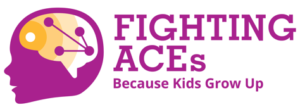
Sign up now for news, events, and education about Adverse Childhood Experiences (ACEs) and promoting resilience.
By submitting this form, you are consenting to receive emails from: Center for Child Counseling, 8895 N. Military Trail, Palm Beach Gardens, FL, 33410. You can revoke your consent to receive emails at any time by using the SafeUnsubscribe® link, found at the bottom of every email.


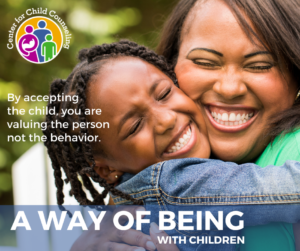


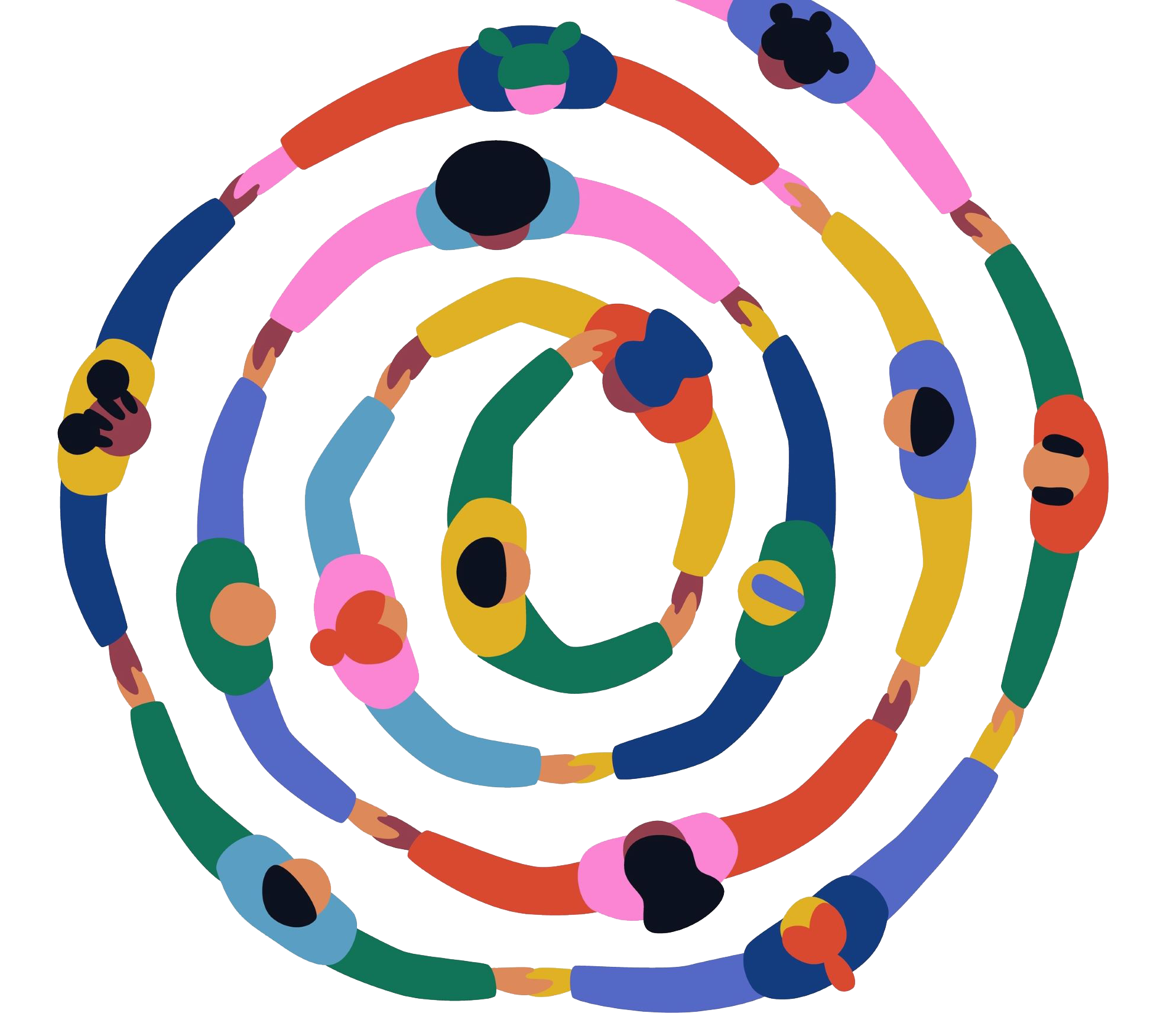
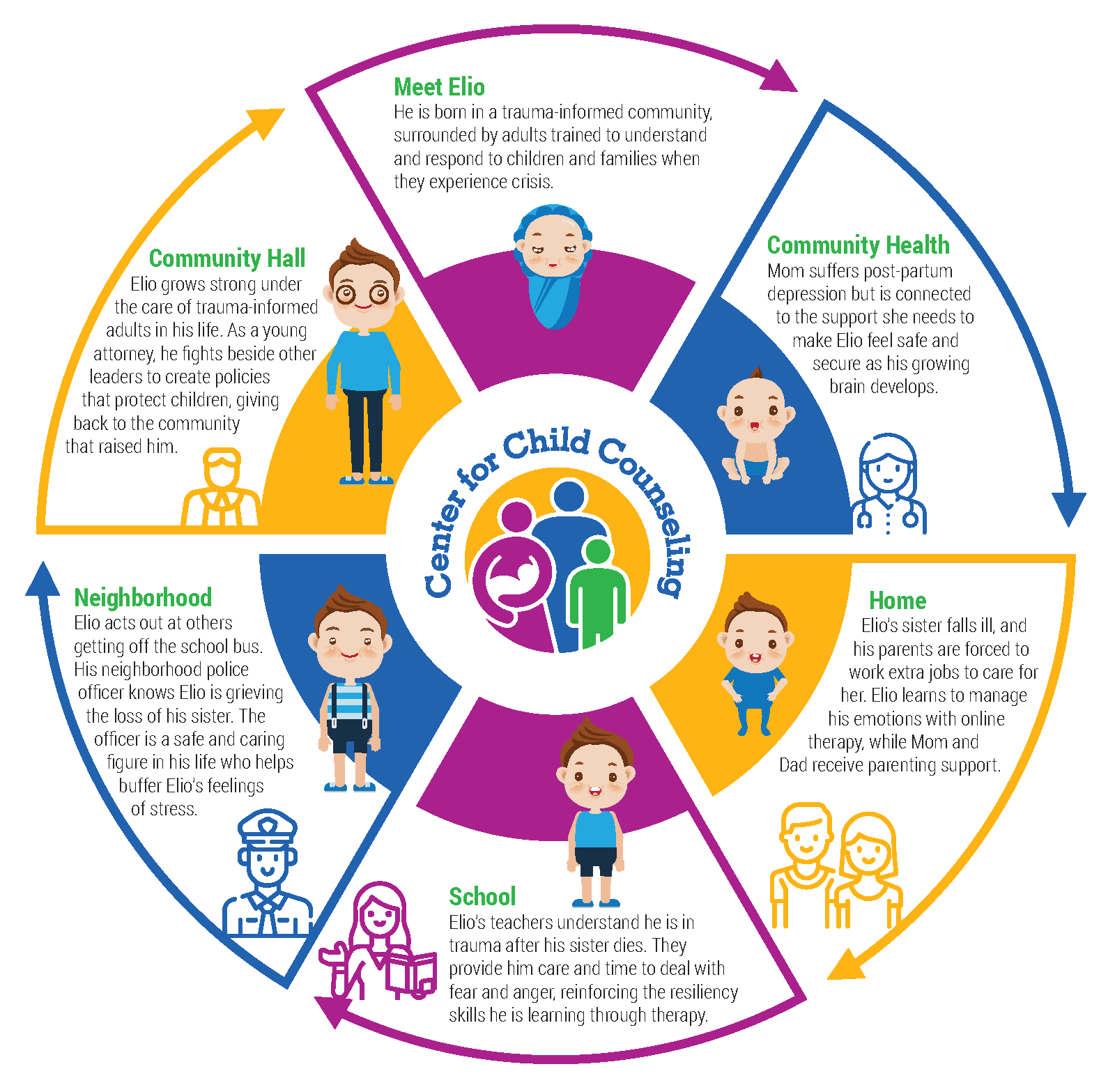 Our Role
Our Role